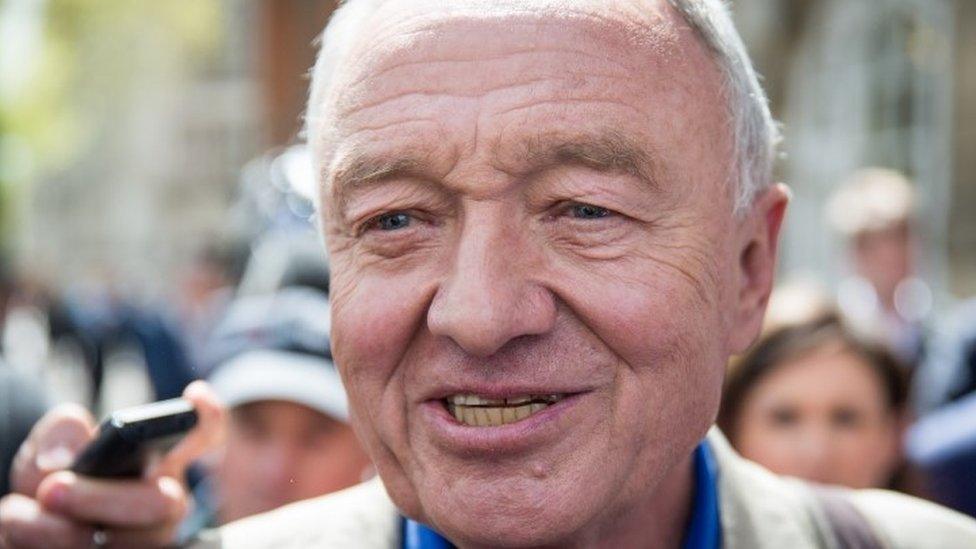The ongoing legacy of 'Red Ken' Livingstone
- Published
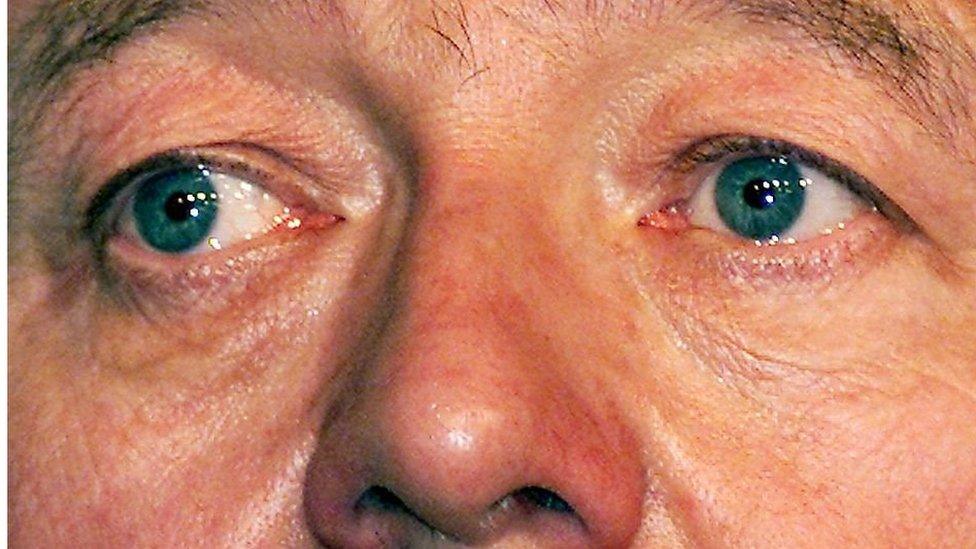
Ken Livingstone's eyes teared up after he was announced as London's first directly elected mayor
Strong terms are used to describe "Red Ken" Livingstone. Figurehead. Thorn in the side. In the words of a High Court judge, maker of "unnecessarily offensive" and "indefensible" remarks.
Trailblazer, newt-lover, antisemite - a description he always rejected. The Sun newspaper once described him as "the most odious man in Britain".
Ken Livingstone always divides opinion.
Now, with the announcement of his Alzheimer's disease, the 78-year-old's political career has definitively ended.
BBC News takes a look at some of the more memorable points of his public (and private) life.
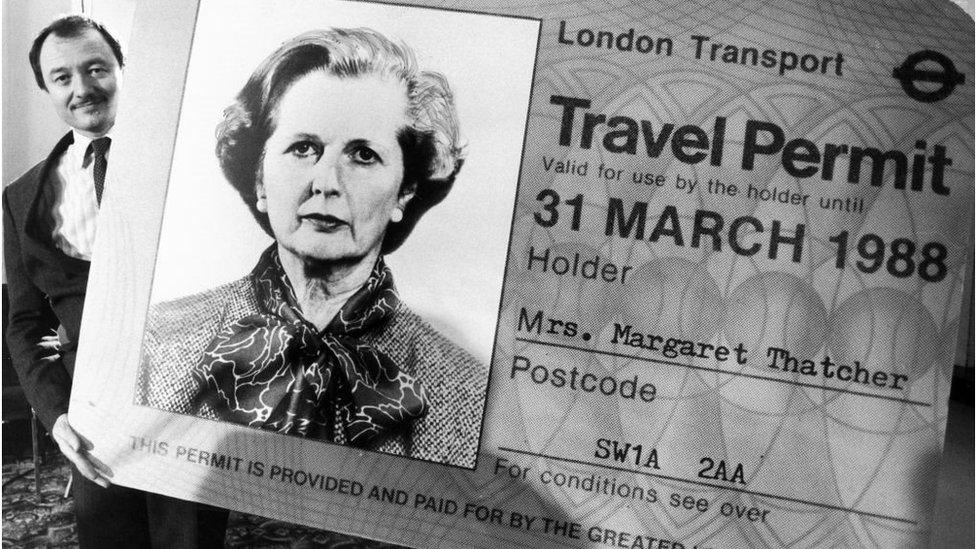
Mr Livingstone was never one to shy away from needling then-prime minister Margaret Thatcher
He became the first directly elected mayor of London, although his appointment wasn't without complication. A Labour Party politician, he was not picked by Tony Blair to be its selected candidate. Mr Livingstone declared he would stand as an Independent. He was kicked out of the party and beat Labour's Frank Dobson.
The then-prime minister invited him back into the Labour fold in time for a second stint as mayor.
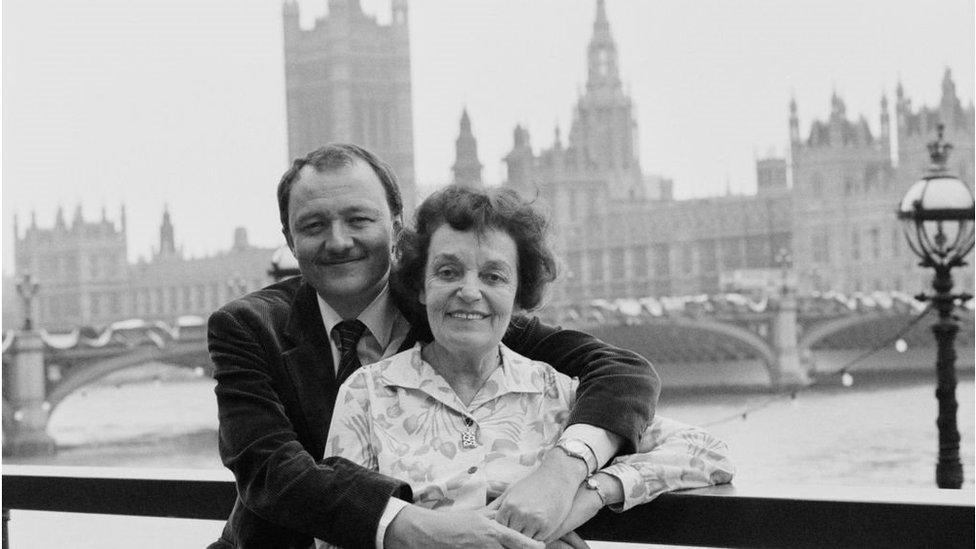
Ken Livingstone with his mother Ethel Ada Livingstone, pictured in 1984

Personal life
Kenneth Robert Livingstone was born at the tail-end of World War Two in south London, to an acrobatic dancer and a ship's master in the Merchant Navy.
He left school at 17 and started work as a laboratory technician. By his early 20s he was an active Labour Party member.
He had a child at the age of 57 with his long-term partner and later wife Emma Beal.
At the time this was thought to be his first child but in 2008 it emerged he already had three other children with another two women.
The Livingstones went on to have a second child in 2004.
His interests include reptiles and newts - writing in the Guardian in 2010, he described skipping school and going to Streatham Common, hoping to catch some tadpoles. Instead, he found a smooth newt, which went home with him.
"My newt plunged into his new domain and slowly pranced backwards and forwards across the bottom. Mesmerised, I sat and stared at the exquisite detail of the colours and patterns in its tail, crest and the bright-orange spotted belly as it swam up to take another gulp of air."

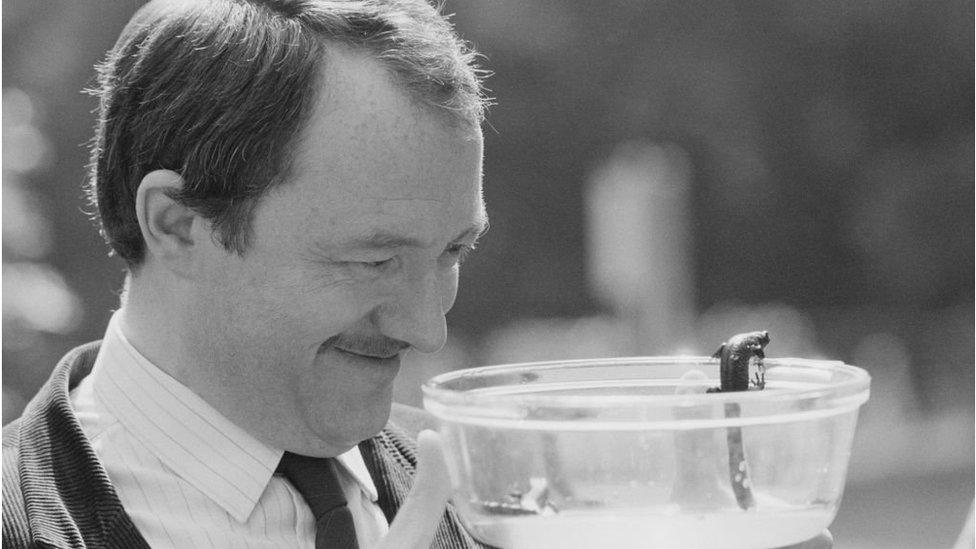
Ken Livingstone looking at a bowl of newts
His political ascent had been swift - within two years of joining the Labour Party in 1969, Mr Livingstone was elected as a councillor in his native Lambeth in south London in 1971 before joining the Greater London Council (GLC) in 1973, aged 27.
He took up a housing role in which he immediately kicked up a fuss about cuts to the GLC's house-building budget, and was sacked.
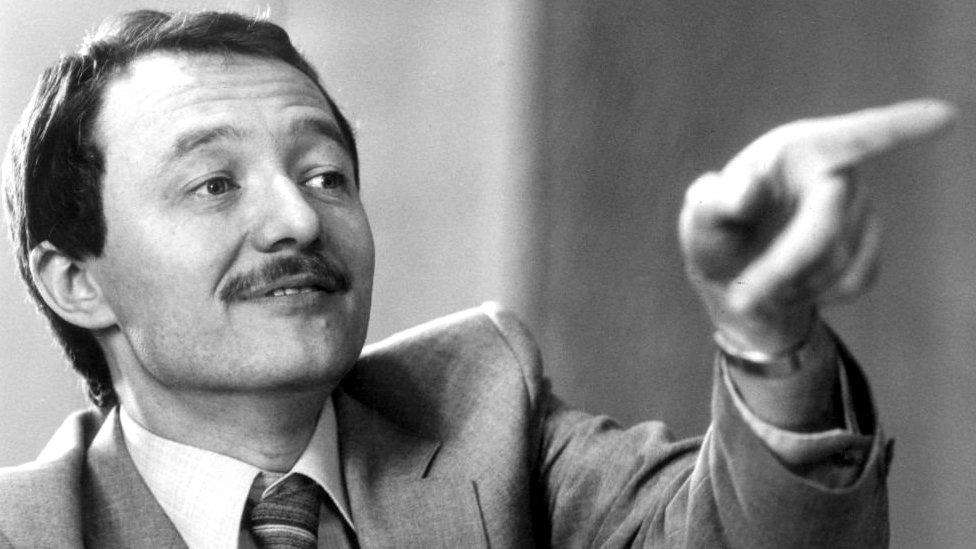
During a news conference while leader of the GLC
In 1981, Labour took control of the council, and he was elected GLC leader.
He always claimed his detractors contributed to making him a public figure.
"If [Margaret] Thatcher had just ignored us," he suggested, "no-one would have ever heard of us."
Darren Rodwell - leader of Barking & Dagenham council - describes Mr Livingstone as a "leading light" in his own youth as he grew up in London.
"He was so pivotal - as a young lad I'd go on strikes and protests - he stood up against Margaret Thatcher for London.
"The GLC was disbanded because he wouldn't bow down. That's leadership.
"It's sad to hear about [his diagnosis], it's an awful illness."
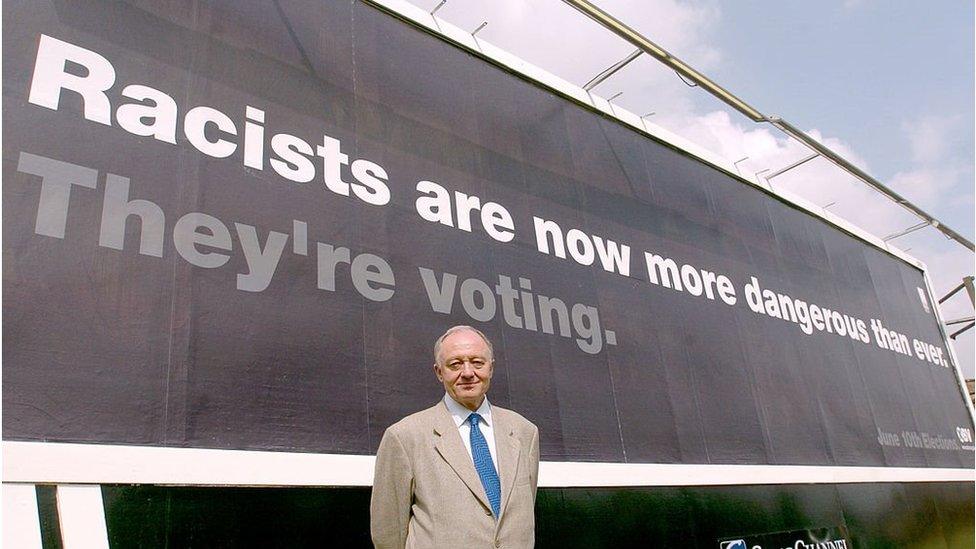
Mr Livingstone championed human and environmental rights

What is Alzheimer's disease?
Alzheimer's is a condition that affects the brain and is the most common cause of dementia.
Dementia can make it difficult to remember things. People might forget who family members are. They might get lost or they may forget what everyday objects are called.
It can make people behave in a way that they've never done before. They may become very upset, sad or angry - and find it difficult to deal with these feelings.

Prof Tony Travers, local government expert at the London School of Economics, describes Mr Livingstone as "a powerful figure in London politics since the 1970s" both as part of the GLC and as the first mayor.
"He was ahead of his time - a supporter of political change ahead of what would be seen as the norm."
Mr Livingstone's flagship mayoral policy was the introduction of the congestion charge in central London, later extended to west London.
Prof Travers said: "He was into minority rights, the environment, At the time it was seen as extreme left-wingery - now it's mainstream politics in many ways.
"To introduce the congestion charge in his first term as mayor in 2003 was a majorly brave thing to do.
"The national government had looked at road-pricing and backed off. So he faced a lot of opposition - now people see the congestion charge as not a political thing."
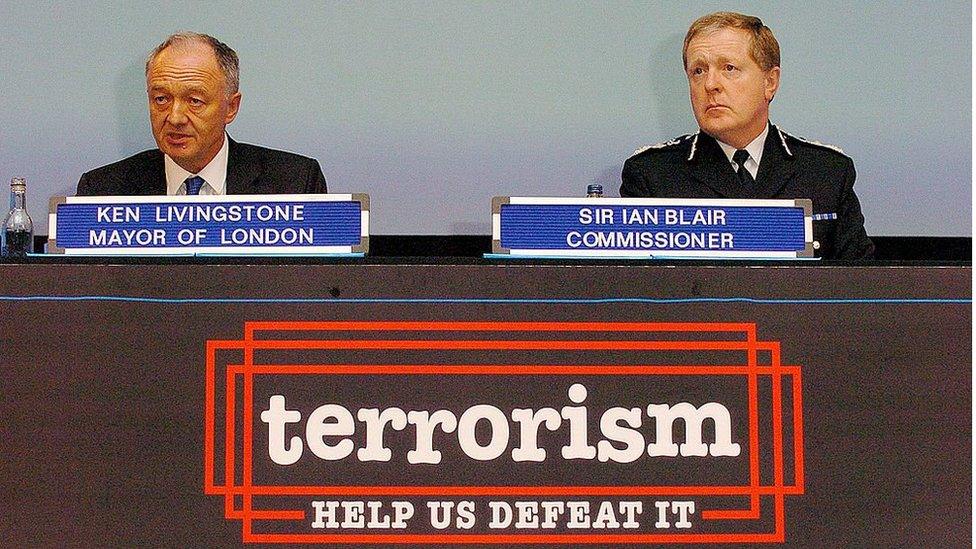
Mr Livingstone was widely praised for his response to the London terror attacks in July 2005
Mr Livingstone revelled in being a bete noire to the right, supporting everyone from striking miners to Sinn Fein's leaders at the height of the IRA's bombing campaign.
He goaded Mrs Thatcher across the Thames in Parliament during the turbulent 1980s by displaying the unemployment figures on City Hall.
During his second term as mayor, Mr Livingstone won widespread praise for the way he stood up for London after the July 2005 suicide bombings and he helped win the 2012 Olympic Games for the capital.
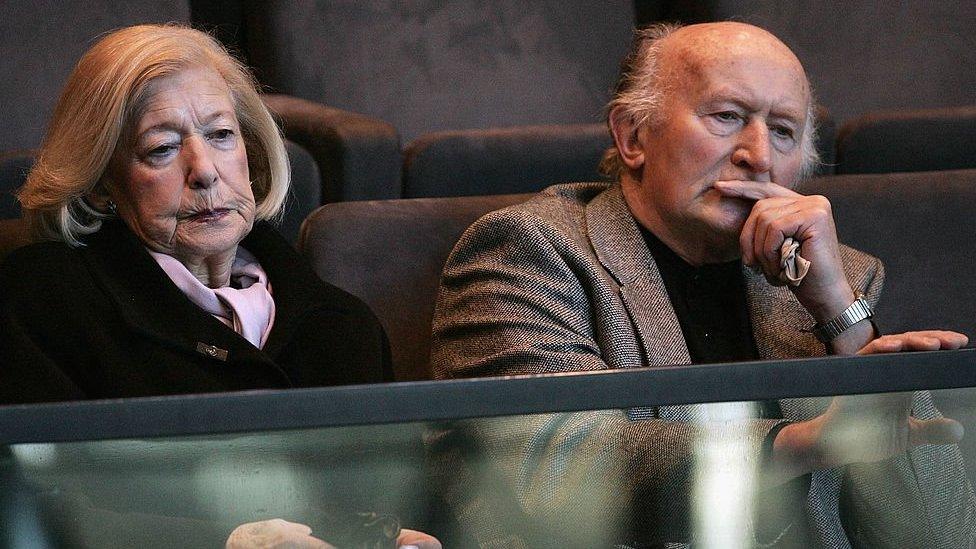
Holocaust survivors Gena Turgel and Roman Halter wait for Mayor of London Ken Livingstone to address the London Assembly. The assembly passed two motions for Mr Livingstone, who had accused a Jewish journalist of behaving like a "concentration camp guard", to apologise and withdraw his comments
He also became embroiled in a series of disputes with sections of the capital's Jewish community, leading to allegations of antisemitism.
In 2006, a High Court judge said Mr Livingstone had made "unnecessarily offensive" and "indefensible" remarks likening a Jewish reporter to a Nazi concentration camp guard.
He was, however, cleared of bringing the office of mayor into disrepute, a ruling he hailed as a "victory for democracy and common sense".
A decade later, he found himself at the centre of a new storm when he came to the defence of MP Naz Shah who had been suspended over offensive social media posts.
Mr Livingstone insisted that, while her remarks were "over the top", she was not antisemitic, and that he had never encountered antisemitism in 40 years in the Labour Party.
His time in office ended in 2008 when he was defeated by another maverick and colourful opponent, Boris Johnson.
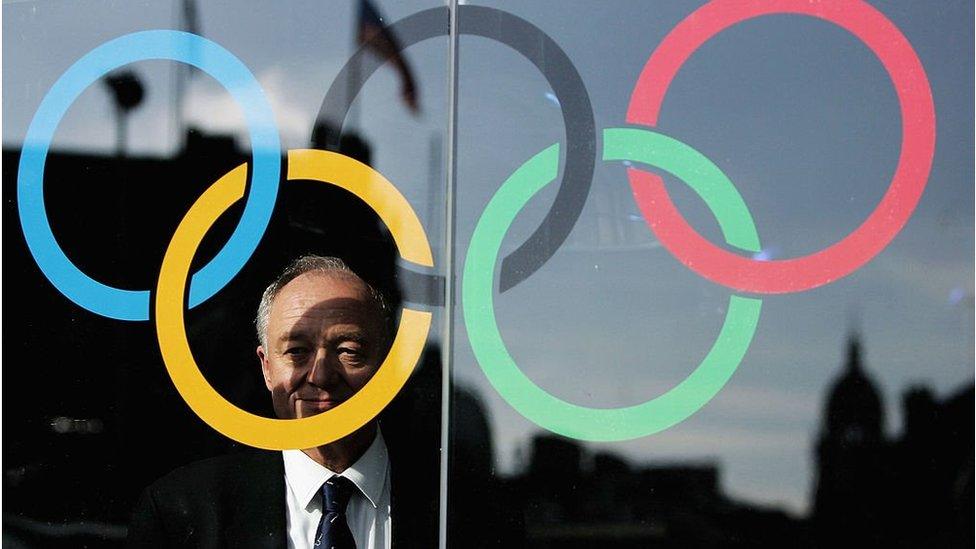
Mr Livingstone's successes include the bid for London to host the 2012 Olympics
Mr Livingstone's legacy spreads further than London.
His voice - described as "nasal and boring" by Britpop band Blur's producer Stephen Street - was even included on Ernold Same, one of the tracks on the band's Parklife follow-up album The Great Escape.
The politician is credited in the sleeve notes as "The Right-On" Ken Livingstone.
Just another way of describing a divisive man of strong opinions who, when it came to what he believed was right for London, has always refused to toe the line.

Follow BBC London on Facebook, external, Twitter , externaland Instagram, external. Send your story ideas to hellobbclondon@bbc.co.uk, external
- Published20 September 2023
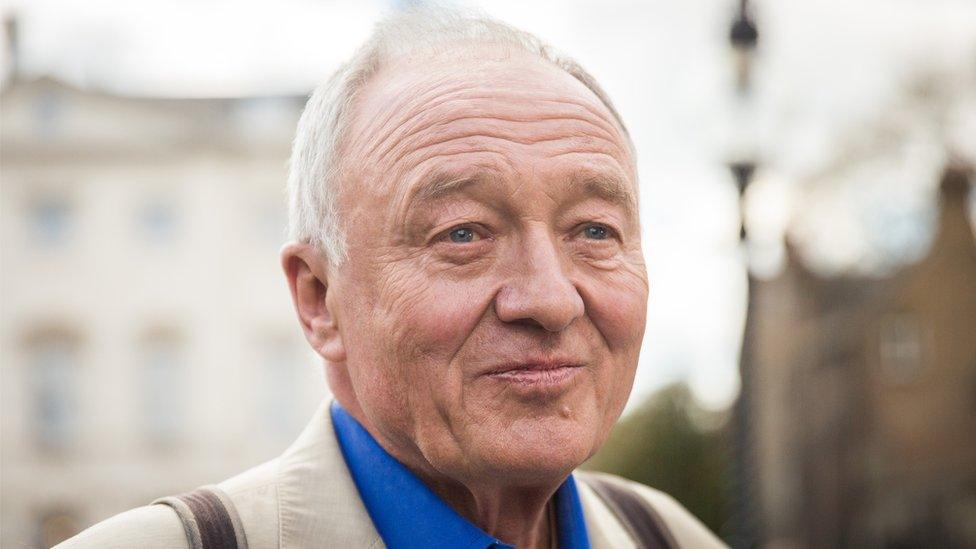
- Published21 May 2018
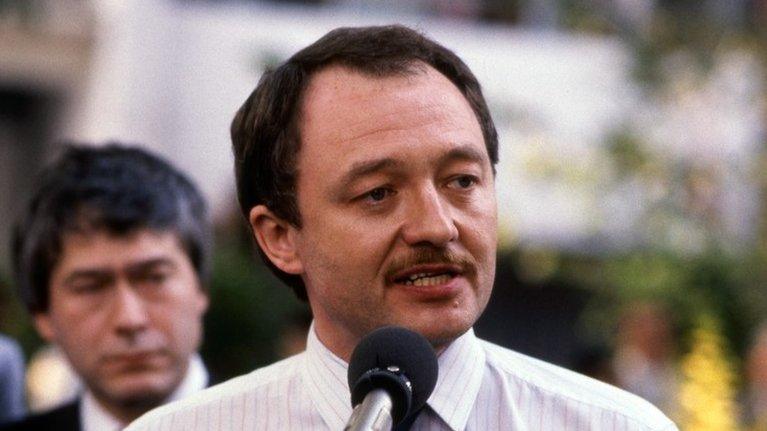
- Published21 May 2018
